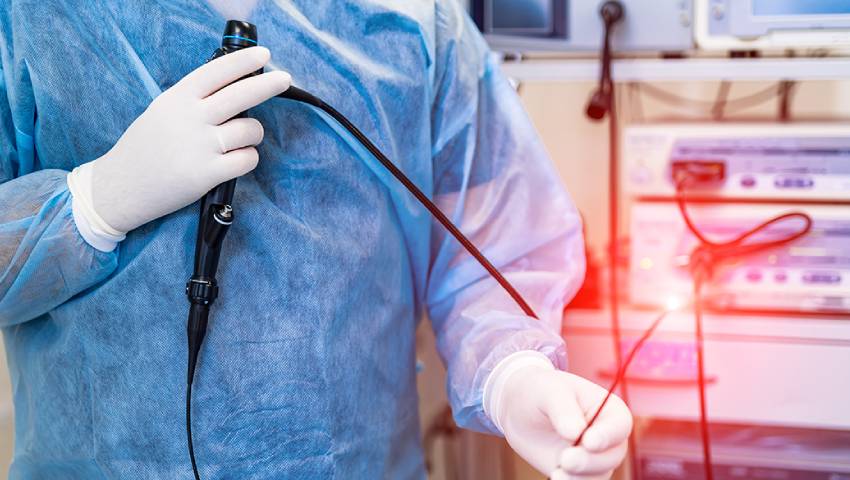
- 01/10/2024
- Kaizen Gastro Care
- 0 Comments
- GI Motility
When to do an Endoscopy in Anemia?
Anemia is a condition characterized by a lack of sufficient healthy red blood cells to carry adequate oxygen to the body’s tissues, leading to fatigue and weakness. While there are various causes of anemia, gastrointestinal (GI) bleeding is a significant one that usually goes unnoticed. Dr. Vikrant Kale, the best GI specialist in Pune from Kaizen Gastro Care Clinic, emphasizes the importance of investigating the underlying causes of anemia, particularly when GI bleeding is suspected. In such cases, an endoscopy can be an essential diagnostic tool to identify the underlying cause of anemia.
What is Endoscopy?
Endoscopy is a minimally invasive technique that allows examining the inside of the digestive tract using a flexible tube with a camera attached. It provides a detailed view of the esophagus, stomach, and upper part of the small intestine, making it an essential tool for diagnosing gastrointestinal conditions.
Beyond diagnosis, endoscopy also plays a therapeutic role. If a bleeding source is identified, endoscopic approaches can often treat the problem on the spot. For example, bleeding ulcers can be cauterized, and polyps can be removed during the same session.
Why Consider an Endoscopy in Anemia?
When anemia is detected, the first step is usually to determine its cause. These are among the causes of anemia, nutritional deficiency (iron, vitamin b12 or folate), chronic infection and losing blood. Among these, gastrointestinal bleeding is a prevalent yet often hidden cause of blood loss that can lead to anemia.
When anemia is suspected to be caused by gastrointestinal bleeding or other GI-related conditions, an endoscopy becomes an essential procedure. Here’s when Dr. Vikrant Kale suggests considering an endoscopy:
- Unexplained Iron Deficiency Anemia (IDA): If you have iron deficiency anemia and there’s no clear cause such as heavy menstrual bleeding or a known history of gastrointestinal conditions, an endoscopy might be required. This technique helps to identify hidden sources of bleeding in the upper or lower GI tract.
- Persistent or Severe Anemia: If your anemia is severe or persistent despite treatment, it may suggest ongoing blood loss, likely from the GI tract. Endoscopy can help locate ulcers, erosions, or tumors that might be responsible for chronic blood loss.
- Symptoms Suggestive of GI Disorders: If you experience signs like abdominal pain, black or tarry stools, weight loss, or a change in bowel habits along with anemia, an endoscopy can help in diagnosing diseases like peptic ulcers, gastritis, or colorectal cancer.
- Anemia in Older Adults: In elderly patients, anemia is often linked to gastrointestinal cancers such as colorectal or gastric cancer. An endoscopy can help determine early-stage cancers, polyps, or other abnormalities that might otherwise go undetected.
- Symptoms of GI Bleeding: If a patient with anemia reports symptoms such as black or tarry stools, blood in the stool, or vomiting blood, an urgent endoscopy is warranted to determine the bleeding site and initiate treatment.
- Family History of GI Disorders: People with a family history of gastrointestinal cancers or conditions might need an endoscopy if they develop anemia, even in the absence of overt signs. This proactive approach helps in early detection and treatment of potentially severe conditions.
- Screening in High-Risk Patients: Certain residents, such as elderly patients or those with a family history of GI cancers, may require an endoscopy to rule out malignancies if anemia is present.
Types of Endoscopy for Anemia:
Depending on the suspected location of bleeding, Dr. Vikrant Kale may recommend one of the following endoscopic procedures:
- Upper Endoscopy (Esophagogastroduodenoscopy – EGD): This method examines the esophagus, stomach, and the first part of the small intestine. It’s useful for determining ulcers, gastritis, or tumors that may be causing upper GI bleeding.
- Colonoscopy: A colonoscopy examines the large intestine and rectum, helping to detect sources of lower GI bleeding, such as polyps, diverticulosis, or colorectal cancer.
- Capsule Endoscopy: For cases where bleeding is suspected in the small intestine, a capsule endoscopy may be used. This involves swallowing a small, pill-sized camera that takes images of the entire GI tract.
What to Expect During an Endoscopy?
An endoscopy is a relatively safe and minimally invasive approach. It involves the use of a thin, flexible tube with a camera (endoscope) that is inserted through the mouth to examine the upper GI tract or through the rectum for the lower GI tract. The procedure usually takes 15-30 minutes, and patients are often sedated to minimize discomfort.
After the endoscopy, Dr. Kale will review the findings and may take biopsies if necessary. These results will guide the appropriate treatment plan, ensuring that the root cause of anemia is addressed.
Conclusion:
At Kaizen Gastro Care Clinic, we understand that anemia can significantly impact your quality of life. If the doctor suspects that anemia is related to a gastrointestinal problem, an endoscopy might be the key to identifying the problem and getting you on the path to recovery. Our team of experienced gastroenterologists is dedicated to providing personalized care and the latest diagnostic techniques to help you regain your health.
If you or a loved one is experiencing unexplained anemia, it’s important to consult with a specialist. The best anemia specialist in Pune, Dr. Vikrant Kale at Kaizen Gastro Care Clinic is dedicated to providing expert care and utilizing advanced diagnostic tools like endoscopy to ensure the best possible outcomes for his patients.
For more information or to schedule an appointment, visit Kaizen Gastro Care Clinic or contact us at 09763635252.
